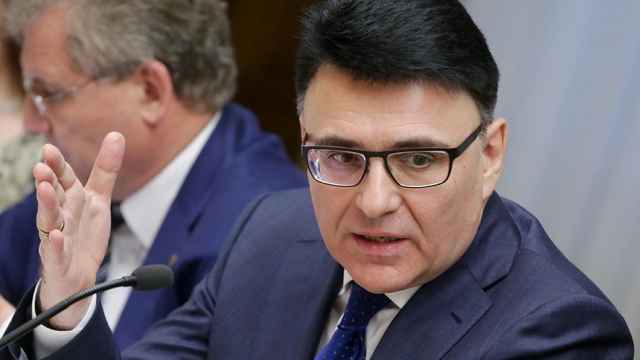WhatsApp and Telegram users in Siberia and Russia's Far East reported widespread outages of the two messaging apps on Wednesday.
Some media outlets speculated that the disruptions were linked to protests in the republic of Sakha (Yakutia) over the killing of a local man.
But outages were reported in at least six other regions in Siberia and the Far East, including Novosibirsk, Khabarovsk, Magadan, Kamchatka and others, as well as in some regions in the European part of the country.
Authorities in Sakha said the outages there were connected to “preventive work” by the local government in coordination with Russia's state communications watchdog Roskomnadzor but did not offer more detail.
Access to WhatsApp and Telegram was restored around four hours following initial reports of the outages, according to the local news outlet Yakutsk Vecerhnyi.
Earlier Wednesday, dozens of residents took to the snowy streets of the Sakha capital of Yakutsk to express outrage over the killing of an ethnic Yakut by what was said to be a Russian-Tajik dual national.
An unspecified number of demonstrators were detained on unknown charges, according to Yakutsk Vechernyi.
The man accused of killing the ethnic Yakut was reportedly placed in pre-trial detention for two months later on Wednesday.
Sakha Governor Aysen Nikolayev blamed Wednesday's protests on “provocateurs sitting abroad and seeking to ignite conflict, sow animosity and divide and harden us.”
A Message from The Moscow Times:
Dear readers,
We are facing unprecedented challenges. Russia's Prosecutor General's Office has designated The Moscow Times as an "undesirable" organization, criminalizing our work and putting our staff at risk of prosecution. This follows our earlier unjust labeling as a "foreign agent."
These actions are direct attempts to silence independent journalism in Russia. The authorities claim our work "discredits the decisions of the Russian leadership." We see things differently: we strive to provide accurate, unbiased reporting on Russia.
We, the journalists of The Moscow Times, refuse to be silenced. But to continue our work, we need your help.
Your support, no matter how small, makes a world of difference. If you can, please support us monthly starting from just $2. It's quick to set up, and every contribution makes a significant impact.
By supporting The Moscow Times, you're defending open, independent journalism in the face of repression. Thank you for standing with us.
Remind me later.






